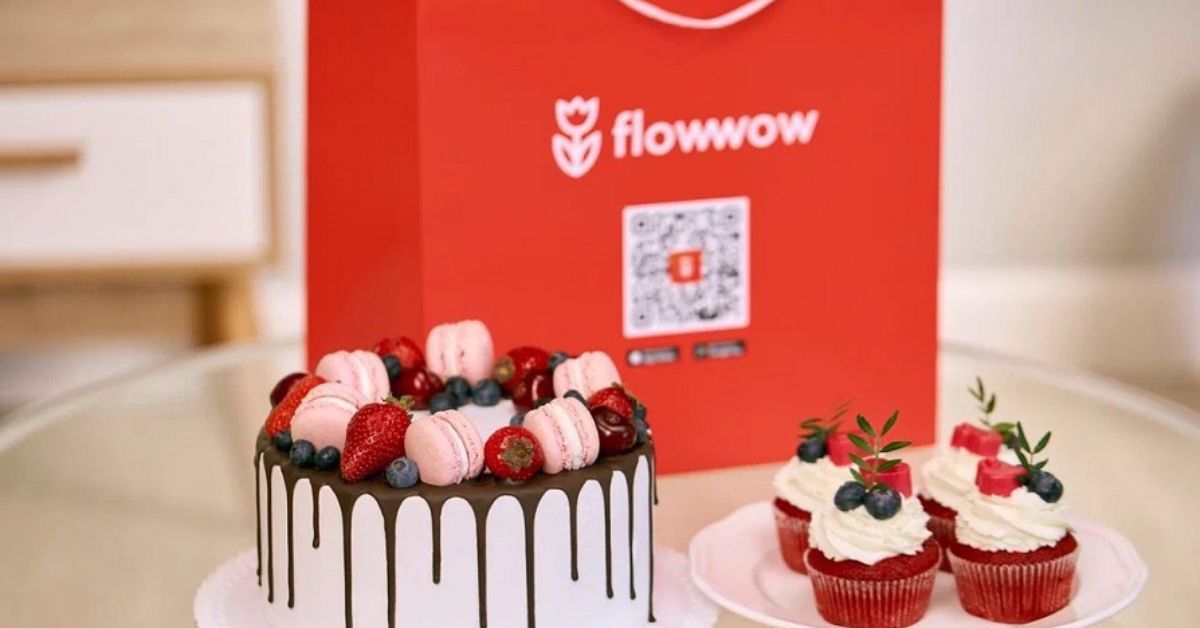DUBAI — The landscape of gift-giving is undergoing a transformative revolution in the GCC countries, driven by the innovative approach of the gifting marketplace, Flowwow.
In an interview with Mariya Gmyzina, Head of Global Expansion at Flowwow, TRENDS delves into the transformation of the gifting sector in the UAE and beyond. With a global presence spanning over 30 countries and an extensive network of 11,000 local brands, Flowwow is not just a marketplace; it’s a catalyst for connecting people through thoughtful and unique gifts.
Sustainable gifting trends
One remarkable trend Flowwow experts noted is the 35 percent surge in orders for eco-friendly local brands in the UAE. Gmyzina attributes this significant increase to changing consumer preferences driven by the aftermath of the COVID-19 pandemic and broader global trends.
This trend signifies a considerable inclination towards sustainable options, with a 25 percent increase in live plant purchases and a 15 percent rise in dried flower orders compared to the previous year.
At A Glance * The UAE sees 35% increase in orders for eco-friendly brands. * There is a rise in sustainable options, including live plants and dried flowers. * Majority of MENA shoppers prefer locally produced, eco-friendly products. * Projected market volume of gift market is likely to touch $50 billion by 2025. * Festive seasons witness spikes in online gifting and discount searches. * Mobile commerce and personalized, AI-driven gift suggestions remain the focus. * Cultural significance plays key role in the GCC's evolving gift industry.
With Middle Eastern consumers increasingly leaning towards sustainability and environmental consciousness, the surge in demand for eco-friendly products reflects a shift towards healthier alternatives and locally manufactured goods.
ESG factors and business strategy
The PwC Global Consumer Insights Survey underscores the significant influence of ESG factors on Middle Eastern consumers. Gmyzina elaborates on how these factors shape Flowwow’s business strategy, emphasizing the company’s dedication to aligning with consumer values.
According to a report by Flowwow, 83 percent of MENA shoppers express a willingness to pay more for locally produced products, and 58 percent would recommend a brand based on its environmental record. The UAE’s interest in sustainability is evident, with 90 percent of consumers eager to receive more information on sustainable living, according to the Sustainability Trends Report 2023.
Furthermore, Flowwow’s observation of a notable 30 percent surge in online gifting in November 2023 prompts a discussion on the factors driving this increased preference.
With the Middle East’s e-commerce sector, Flowwow is set to reach a substantial market volume of US$ 50 billion by 2025. Flowwow has strategically positioned itself to lead in this dynamic market.
During the festive season in December 2023 and January 2024, MENA consumers are expected to favor online gifting for its convenience, personalized options, and expedited delivery services. However, cost-consciousness remains pivotal, with searches for discounts and winter sales increasing by 55 percent and 25 percent, respectively, indicating a desire for value-driven purchases.
Anticipating critical trends in the coming year, Flowwow recognizes the ascendancy of mobile commerce (m-commerce) and invests resources to develop an easy-to-use app, enhancing East’s, and mobile-adapted websites. Committed to enhancing the shopping experience, the platform offers various mobile payment solutions.
Additionally, the GCC will witness a growing demand for personalized and curated gifting experiences that can be integrated into AI tools to provide gift ideas based on individual customer preferences.

Global gifting marketplace
Flowwow emerged as a global gifting marketplace to simplify the gift-giving process and bridge the gap between local brands and consumers. Operating in more than 30 countries, including the UAE, Spain, the UK, Brazil, and the CIS region, Flowwow has redefined the online gifting market.
In the interview with TRENDS, Mariya Gmyzina highlights the company’s exponential growth in the UAE, becoming the fastest-growing market within just a year of its expansion. With 2X turnover growth in 9 months, 60 percent repeat purchases, and over 110 active sellers, Flowwow’s success in the UAE speaks volumes about its impact on the region’s e-commerce landscape.
Flowwow stands out from other companies through its unique approach that places local sellers at the heart of its business. The platform provides a global presence for local SMEs, offering them access to loyal and paying customers worldwide, innovative tools, and marketing instruments. Flowwow empowers the region’s local businesses to scale and promote their products. This distinctive feature supports small companies and fosters a sense of global community, allowing individuals to surprise their loved ones with locally crafted gifts, regardless of geographical boundaries.
Promoting sustainability
The Sustainability Trends Report 2023 indicates a rising advocacy for sustainable and eco-friendly business practices in the MENA region. Mariya Gmyzina discusses how Flowwow addresses this demand by collaborating with local businesses that align with sustainable practices. The platform encourages sustainable consumption by working with sellers who produce products based on customer demand, thereby reducing excess and promoting mindful buying habits. Flowwow’s commitment to sustainability is not just a response to market trends; it’s a strategic initiative to contribute to positive environmental change.
The 35 percent surge in eco-friendly orders reflects a shift towards healthier alternatives and locally manufactured goods.
Mariya Gmyzina, Head of Global Expansion, Flowwow
The gift business in the Gulf Cooperation Council (GCC) has experienced a remarkable surge in recent years, reflecting a cultural emphasis on generosity, hospitality, and celebrating special occasions. With a diverse population representing various cultures and traditions, the GCC has become a dynamic market for the gift industry. The region’s vibrant gift culture is deeply embedded in social customs, religious festivities, and personal milestones, creating a thriving demand for a wide array of gift options.
In the GCC, gifting extends beyond mere exchanges and holds significant cultural and social value. The business landscape has evolved to accommodate diverse preferences, ranging from traditional and artisanal gifts to modern and tech-savvy options.
The emergence of online platforms and marketplaces has further fueled the growth of the gift business, providing consumers with convenient access to a plethora of choices while enabling businesses to reach a wider audience. The gift industry caters not only to individual consumers but also to corporate entities seeking premium and customized offerings for their clients and employees.
Sustainability has become a key focus in the GCC’s gift business, aligning with global trends. As consumers in the region express a growing interest in eco-friendly and socially responsible products, gift businesses are adapting by incorporating sustainable options into their offerings.
From locally sourced and organic items to reusable and recyclable packaging, the gift industry in the GCC is undergoing a transformation to meet the evolving preferences of environmentally conscious consumers. This shift not only reflects a commitment to responsible business practices but also taps into the rising demand for gifts that align with the region’s cultural values and contemporary sustainability goals.








